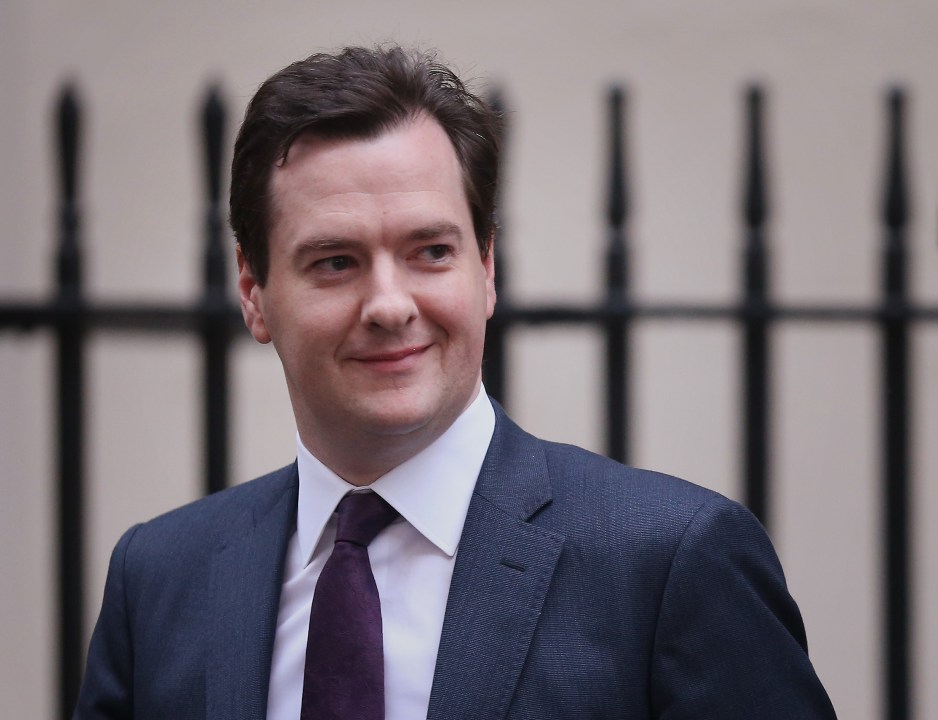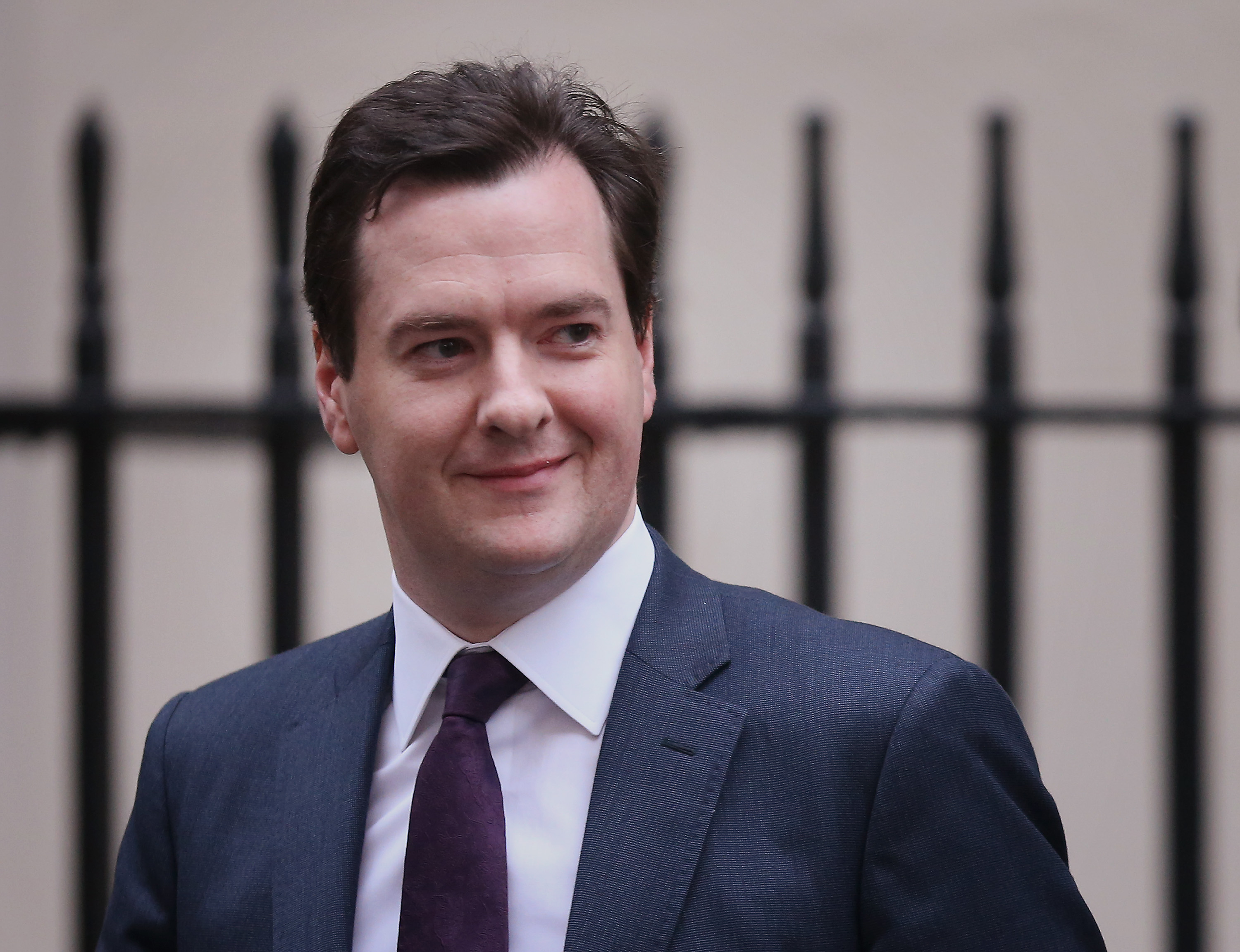The other day, George Osborne was walking with his wife across the courtyard of the Royal Academy. In the evening sunshine, the Chancellor spotted another Tory MP in the opposite corner. The MP was on his mobile: a wave would have seen courtesies observed. But Osborne, who was dressed for dinner, strode over and waited from a polite distance as the call was concluded. His eagerness to talk was particularly striking since the MP had been a frequent critic of Osborne’s handling of the economy.
When the conservation started it was clear that the MP’s criticisms were the reason Osborne had come over. The Chancellor, in buoyant mood, wanted to get the MP’s views on how the economy was going. He asked the question because he knew the answer. Sure enough, his critic said that it looked like the economy was going to grow solidly, if not spectacularly, between now and the next election. Having extracted that concession, Osborne — visibly satisfied — moved on.
But if Osborne took pleasure from this exchange, it was nothing compared to his delight at Ed Balls’s acceptance that an incoming Labour government could not end austerity. The Chancellor’s intellectual allies believe that this means Labour will have to fight the next election on Tory turf, accepting the case for deficit reduction.
The Treasury has long been convinced that the economy will start growing steadily from this summer. But this is now the consensus forecast of Tory MPs too. Those on the government benches who expect another bust are lonely figures these days; they also happen to be some of those most disillusioned with the current leadership.
In Tory circles, the debate is increasingly about whether the government should go public with its optimism. At a recent meeting of the Cameroon Green Chip Club of Tory MPs, the Prime Minister was urged to tell the public that growth has finally arrived. David Cameron poured cold water on this suggestion, warning that things could still go wrong given the situation in the eurozone. He said, sternly, that he had ‘no desire to pre-announce a recovery’. But it is hard to find a Tory minister who doesn’t think that the economy is picking up. One Cabinet minister confidently declares that ‘the argument that George Osborne is presiding over a flatlining economy won’t be tenable at the next election’.
As optimism among Tory MPs increases, so does their admiration of the Chancellor. Osborne’s appearances before the 1922 Committee used to be tense occasions, but this month’s was a far more sedate affair: Osborne left looking relaxed rather than relieved. One MP remarked afterwards, ‘Colleagues just aren’t as concerned about the economy as they once were.’
The next fortnight will test Osborne’s revival. First, there is the question of how he’ll respond to the report of the Parliamentary Commission on Banking Standards. The commission’s recommendations will be extremely hard to ignore given how respected its members are. Indeed, Treasury sources fear that if rejected any of its proposals are rejected, it could lead to defeat in the Lords. An amendment put down by the Archbishop of Canterbury, Lord Lawson and the former Cabinet Secretary Lord Turnbull would command broad support in their Lordships’ house.
Treasury sources deny that they have a political timetable for selling the government’s stakes in Lloyds and RBS. But they are acutely aware of the political symbolism of being able to declare that these banks can now be returned to the private sector. It would be a surprise if at least a tranche of the public’s shares in these banks had not been sold off before 2015.
Then there is the spending review next week. The cuts announced then will be implemented as the general election campaign rages. They will become instant political dividing lines. The problem for Osborne is that because of Nick Clegg’s veto he has cut £6 billion less from welfare than he needed. This means that the axe will have to be swung harder elsewhere. Osborne had calculated that when Clegg saw what else would have to go, the Deputy Prime Minister would capitulate. But he hasn’t.
One senior ally of the Chancellor tells me that Osborne was so keen to cut welfare rather than departmental spending that he offered to reopen discussions about further taxes on the wealthy. He reasoned that if the Liberal Democrats could show that the rich were paying yet more in tax, they might be more open to further benefit cuts. But Clegg simply wasn’t interested.
To the glee of the Deputy Prime Minister’s office and the consternation of several Tory ministers, Osborne has left most of the spending review work to Danny Alexander. Tories complain that the Liberal Democrat Chief Secretary has taken this opportunity to block cuts to Clegg’s pet projects and defend spending that the junior coalition partners are ideologically committed to. One Tory secretary of state complains that he could have settled far earlier if it had not been for Alexander stymieing much of his proposed pruning.
But Osborne’s approach has been informed by the fact that Vince Cable’s business department will, probably, be the last to settle. One senior Treasury source says, ‘The ask there is pretty big. Pressure is being applied but there’s a lot of resistance.’ Osborne believes a yellow on yellow fight is more likely to deliver the savings he needs.
It is clear that Osborne is close to restoring his standing in the Tory party. Last year’s unravelling Budget is becoming an increasingly distant memory. His track record at getting those close to him promoted means that ministers and MPs are increasingly keen to be seen as in his camp. At the same time, Balls’s unpopularity has neutered some of the arguments about whether Osborne is an electoral liability. Revealingly, some of those closest to him have once again begun to wonder about whether he might be a candidate to move next door at some point.
Osborne’s political career to date has been marked by pronounced highs and deep lows. Another trough would revive all the old questions about him. But if the economy really is in for a period of stable growth, then the Chancellor will have an opportunity to establish himself as the dominant force in the parliamentary Conservative party.








Comments